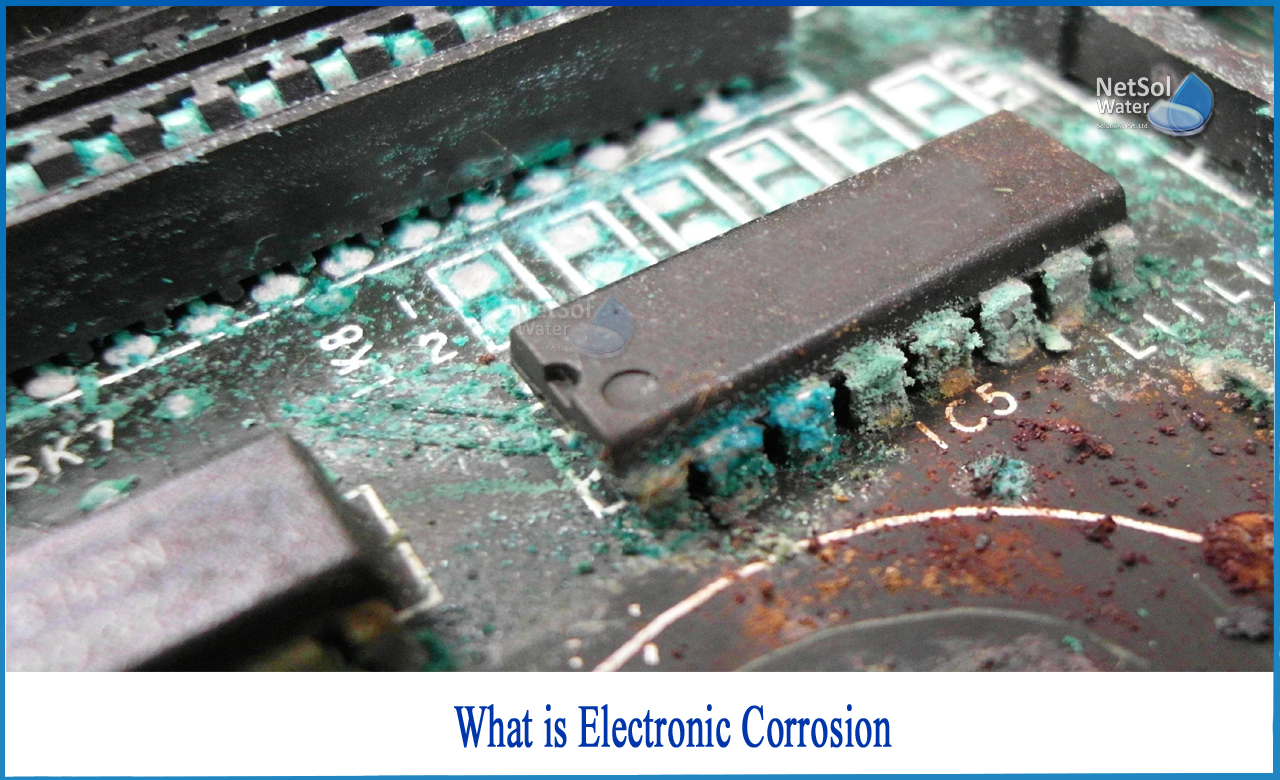Overview
Time is a great healer, but it can also be destructive when it comes to topics of industrial consequences. Every machine, like every human person, has a life of its own. However, if you don't maintain it over time, your efficiency will plummet.
Corrosion is the scientific word for the withering of machinery over time. The elements of nature — heat, light, air, and moisture - tarnish the components over time, rendering them ineffective and finally broken.
What is Electronic corrosion?
Electronic corrosion can happen for a variety of causes. This sort of corrosion is common in computers, integrated circuits, and microchips, which are all used in modern industrial technology. This type of technology has a wide range of applications, and as a result, it is continually exposed to a variety of various environmental conditions. Electronic corrosion is a sneaky sort of corrosion that can't be identified with any type of testing, leading to the component being written off as non-functional.
Every sort of electrical machinery contains a number of components. Integrated circuits, printed circuit boards, and connections and contacts are examples. Silicon, copper, lead-tin alloys, nickel, and gold are among the materials used in these components. The use of these materials reduces the chances of corrosion, but it does not entirely remove the problem.
To avoid eventual corrosion, it's first necessary to comprehend how and why it occurs!
Metals are commonly used in industrial machinery; when these metals come into contact with moisture and oxygen in the atmosphere, they undergo a spontaneous chemical reaction that produces the oxide of that metal, which we call rust; this rust comes off the surfaces as flakes of crumbling solids, eventually eating away all of the metal. Impurities in the air around the machinery, such as acidic gases, further catalyse this process. It's critical to use corrosion control technologies at this micro level in businesses where even minor airborne pollutants can cause significant losses.Since rust can have a significant influence on some of the micro-miniature components used in electronic applications.
While there are a range of methods for treating corrosive materials at the macrolevel, such as coatings, oiling, and passivation, there is also a need to use corrosion control measures at the microlevel. Some corrosion protection filtration methods are required by some corrosion control units, which are designed to remove corrosion gases and preserve sensitive equipment such as electronics, data centre equipment, room equipment, switch gears, and more in the industries.
Steps for prevention of corrosion
To avoid corrosion, one must take all measures deemed essential to keep it at bay and keep their machines in good working order at all times. Here are a few tips to help you accomplish the same:
• Corrosion Control Monitoring — In order to safeguard your instruments from any potential corrosive factors, it's critical to have their concentration air checked at all times so that you can maintain a non-corrosive atmosphere around them. You may monitor such elements as temperature, humidity, and live corrosion rates using the current technology provided by firms by installing corrosion monitoring units at your location.
• Passive Coupons - In order to prevent corrosion, it is necessary to have a thorough understanding of the circumstances in the room where the instrument is kept. For that, a strip of identical material can be inserted for the time being, and the corrosion levels in that particular atmosphere can be measured in the lab afterwards.
• Corrosion Manage Units - The practical solution to control oncoming corrosion is to install a corrosion control unit in the room that can control the concentration of corrosive substances in the air by adsorbing them on its surface. This approach for corrosive gas removal is very convenient, adaptable, and long-lasting, and it may be used for a variety of compounds.
We are talking about corrosion because the companies that we are associated with deal with machineries and it is important to protect them from corrosion issues.
We, on the other hand, are India's leading manufacturers of water and waste water treatment systems.
Netsol Water is Greater Noida-based leading water & wastewater treatment plant manufacturer. We are industry's most demanding company based on client review and work quality. We are known as best commercial RO plant manufacturers, industrial RO plant manufacturer, sewage treatment plant manufacturer, Water Softener Plant Manufacturers and effluent treatment plant manufacturers. Apart from this 24x7 customer support is our USP. Call on +91-9650608473, or write us at enquiry@netsolwater.com for any support, inquiry or product-purchase related query.



